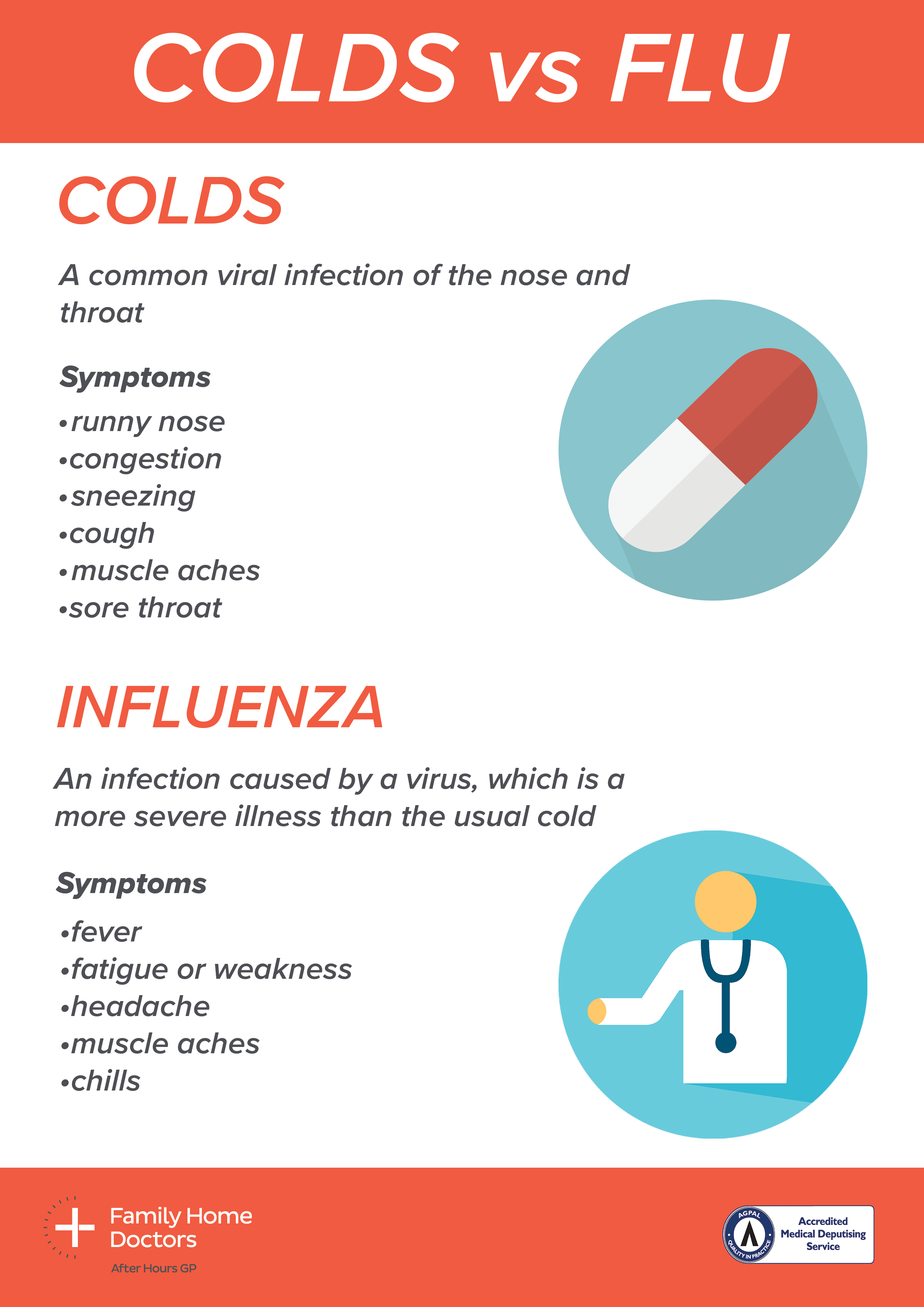Do I have the flu or is it simply a cold? Our Clinical Director weighs in on the symptoms associated with both, and some advice for what to do during flu season.
The cold weather hits and you start feeling down – the dreaded sick months have started. Unfortunately avoiding everyone coughing and sneezing near you hasn’t worked.
But how do you know if you’re just suffering from a slight cold, or in the throes of something more involved?
Colds are a common illness, which can be caused by over 200 different viruses. A cold has no vaccine, and odds are you have experienced a cold once or twice in your lifetime. The flu on the other hand is a viral infection and there is a vaccine available.
Symptoms of Flu
- Fever
- Chills
- Fatigue or weakness
- Muscle aches
- Headache
Symptoms of Colds
- Runny nose
- Sneezing
- Cough
- Muscle aches
- Congestion
- Sore throat
Sometimes it can be difficult to differentiate between the cold and flu as they often share the same symptoms. If you are ever concerned with your health and your symptoms, if these symptoms persist or are not consistent with influenza, make an appointment with your regular GP to determine the cause.
Flu season is in the winter months, from June to August for Australians. It is during this time that the most flu cases are seen. Due to this, the best time to get a flu shot is any time before June so your body has time to be immunised. Those who are strongly encouraged to get the flu shot include elderly persons 65 years old and over, those who suffer from chronic illnesses, asthma or chronic obstructive pulmonary disease (COPD), or are pregnant.
Some ways to prevent getting sick involve staying active, eating healthy and keeping good personal hygiene. Some vitamins boost immunity, however there is no convincing evidence to suggest this and is a matter which is still in great debate.
If you do get sick with either the flu or a cold this winter, remember to wash your hands to prevent spreading it to others, especially after coughing and sneezing.


Information taken from Family Home Doctors’ Clinical Director (MBBS, FRACGP), and edited for clarity by Family Home Doctors’ Marketing team.
This publication is provided for education and information purposes only. It is not a substitute for professional medical care. Information about a therapy, service, product or treatment does not imply endorsement and is not intended to replace advice from your healthcare professional. Readers should note that over time currency and completeness of the information may change. All users should seek advice from a qualified healthcare professional for a diagnosis and answers to their medical questions.


